
by Mark Maney | 13 Jul , 2020 | Articles, Christianity and Social & Moral Issues, FOCUS, Value of Life
There is a common accusation from those who support the legalisation of cannabis that the illegality of cannabis causes disproportionate harm to ethnic minorities. Joseph Boden, a professor in the Department of Psychological Medicine at the University of Otago, Christchurch and who sits on the government’s Expert Panel on Cannabis asserts that “Prohibition is racist, it operates in a racist manner, and you see this everywhere and that’s one of the main reasons, to me, to get rid of it. It’s actually a tool for white people to oppress minorities. The trouble with police discretion”, he argues, “is that it then goes down to the individual officer who isn’t necessarily accountable for their motivations and may not even understand their own motivations…Māori are two and a half times more likely to be convicted for cannabis offences than non-Māori, and that’s after correcting for differences in rates of use. If you’re brown, your chances of getting leniency from police is lower.”1
In response to that, I argue that the legalisation of cannabis would in reality not benefit racial minorities, but instead cause them significant harm. How?
Ask yourself the question, if cannabis is legalised and sold, where will it be sold? Will cannabis shops pop up in the rich privileged neighbourhoods, or will they more likely be found in the most vulnerable ones?
Many people think they might vote “yes” to the legalisation of cannabis in the upcoming referendum, primarily because they do not want people to go to jail or get a criminal record for cannabis usage (which is of course why we should genuinely investigate decriminalising the use of cannabis, not legalising cannabis so that it can be openly manufactured, promoted and merchandised).
But if you ask those same people, “So, if we openly sell cannabis in your own neighbourhood, and at a shop just down the road, is that okay? If we locate cannabis shops where your kid passes by on the way to school, is that okay with you?” Asked that question, most people would instinctively feel “No, no, no. Let’s put cannabis shops somewhere else, not anywhere near me or my family”.
Local councils would start getting calls from constituents saying, “You know, I thought legalising cannabis was good, but they’re not going to open a store near here, are they? What can we do to stop it?” And eventually, the majority (not all) of cannabis shops would end up in those minority communities which have the least resources to fight the negative consequences of cannabis usage.
Now before you think this is just a concern of the author of this article, it is obvious that the government also knows this is true. In Sections 16 & 88 of the Cannabis Legalisation and Control Bill (Exposure Draft for Referendum Version) the government lists the criteria for the issue of a cannabis distribution licence. Here is the criteria from section 88 (expanded criteria originally set in section 16):
d) Take into account the following factors relating to the proposed location or locations of the premises:
i. the characteristics of the locality or part of the locality
ii. the locations of kindergartens, early childhood centres, schools, tertiary institutions, places of worship, parks, sports facilities, swimming pools, playgrounds, and other community facilities
iii. the cumulative effect of the presence or absence of other licensed premises in the same locality:
iv. whether the amenity and good order of the locality would be likely to be reduced, to more than a minor extent, by the effects of the issue of the licence:
v. whether the amenity and good order of the locality are already so badly affected by the effects of the issue of existing licences that they would be unlikely to be reduced further (or would be likely to be reduced further to only a minor extent) by the effects of the issue of the licence but it is nevertheless desirable not to issue any further licences in the locality:
A key phrase here is in point iv, which states, “whether the amenity and good order of the locality would be likely to be reduced.” With that in mind, which communities do you think are going to get the larger share of cannabis shops? Which communities’ property values are not going to be lowered much by a nearby cannabis shop? Unfortunately, it will often be communities with racial minorities who do not have the resources to fight the establishment of such a shop. And with the presence of a shop, there will be an increase in cannabis usage in the community. With that, there will be yet one more factor separating those who live in privileged areas from those who do not.
In conclusion, take a sober look at the final point (v): “whether the amenity and good order of the locality are already so badly affected by the issue of existing licences that they would be unlikely to reduced further”. To me, that is a clear acknowledgement of the damage that will be done to some communities by the legalisation of cannabis. I ask again, what communities are likely to be so badly affected by the existence of licenced cannabis locations that they are “unlikely to be reduced further”? It can only be those communities that are already disempowered in society – those racial minorities whose voices are too easily ignored and whose pain and problems are being offered the cold comfort of legalised cannabis.
For these reasons, and the reasons stated in my previous article, particularly that the government should first do a thorough, genuine, investigation into decriminalisation, we should vote “no” to the legalisation of cannabis in the upcoming referendum.
1 Alice Webb-Liddall, “A Compelling NZ Academic Argument to End Cannabis Prohibition – from 1975,” The Spinoff, January 21, 2020, https://thespinoff.co.nz/society/21-01-2020/this-1975-study-tells-us-about-what-we-always-knew-about-cannabis/.
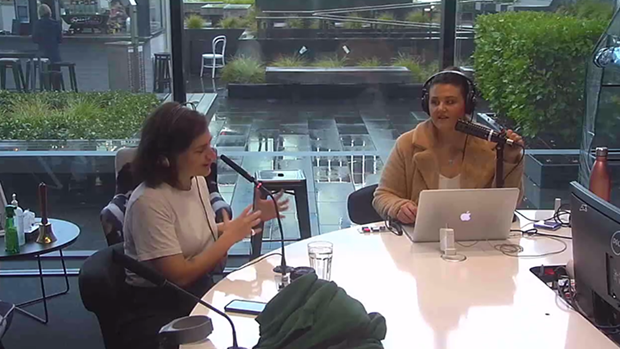
by Mark Maney | 8 Jul , 2020 | Articles, Christianity and Social & Moral Issues, FOCUS, Value of Life
Recently on ZM’s Fletch, Vaughan & Megan morning show, Green MP Chlöe Swarbrick was interviewed about the upcoming cannabis legalisation referendum. In the interview, Chlöe and her hosts gave several arguments in favour of voting “yes” to cannabis legalisation. However, while some of Chlöe’s points are compelling, on balance most of her positive points could be achieved through decriminalisation without the negatives of legalisation. By decriminalisation I mean a policy of making simple possession or use of cannabis a non-criminal offence (similar to a minor traffic violation) and treating cannabis use as a health issue instead of a criminal one. Legalisation on the other hand refers to allowing the possession, purchasing, selling, and using of cannabis for recreational purposes.
I’ll sum up Chlöe’s arguments as best I can, and then provide a short response. If you want to see her arguments in greater detail we have included a transcript here. If you want to see the evidence for my arguments in greater detail, see various on the Say Nope To Dope website.
Chlöe argued: People buying cannabis on the black market have no way of knowing if what they’re ingesting is safe or has anything extra added to it. Legal cannabis allows the government to regulate what a person can purchase, helping ensure that cannabis is free of toxins.
I respond: This is probably the single best argument for legalisation as opposed to decriminalisation. However, it appears that in places such as the USA and Canada where cannabis has been legalised, the black-market industry is still thriving since it is not subject to government regulations and thus can provide cheaper and stronger forms of cannabis. Therefore, while legalisation provides a safer option for cannabis users, it doesn’t prevent people getting their hands on more toxic, cheaper cannabis if they so desire.
Chlöe argued: Young people’s lives should not be ruined by getting a criminal record for smoking a joint at a party.
I agree. There is a good case for why we should investigate decriminalisation of cannabis usage, and treat cannabis use as a health issue, not a crime issue. But a key point is that we don’t need to legalise cannabis to make it a health issue, we just need to decriminalise it.
Chlöe argued: Everybody is already using it. Let’s make it legal, thus taking the sexiness out of it, and then we can have grown-up conversations about intoxication and addiction.
It seems to me that alcohol is viewed as quite a sexy drug, and it’s been legal for ages. What makes something “less sexy” is not whether it is legal or not, but the culture fostered around it. In reality, by promoting legalisation the Government is promoting the idea that cannabis is “sexy”, which contradicts, in spirit, the Government’s Smoke Free 2025 initiative.
Chlöe argued: in response to the argument “Why are we looking to legalise cannabis when we are looking to be smoke free 2025?” that the reason smoking is no longer “cool” was only made possible by the fact that smoking is legal.
The reason smoking isn’t cool anymore has nothing to do with it being legal. It has to do with a multiple decade-long campaign to show how damaging smoking is. Cigarette ads being banned, in addition to a consistent negative ad campaign against smoking, have helped to take the “sexiness” factor away from cigarettes. Legalisation is the only reason cigarettes are still around!
Vaughan [07:16]: “And we’ll get some sweet tax dollars from it, won’t we?”. Chlöe: [07:19] “I mean to the tunes of hundreds of millions of dollars”.
Yes, there will be tax revenue with the legalisation of cannabis. But if you’re going to talk about revenues, one also needs to talk about costs. You cannot just look at one side of the ledger. A bad way to look at any business is to only look at revenues. What are the costs? What are the costs to New Zealand in terms of drugged driving, public safety, public health, etc.? Annual societal costs from alcohol and tobacco far exceed the tax revenues they raise. Legalisation of cannabis will lead to increased use, which will lead to even greater societal costs for New Zealand.
Chlöe argued: Cannabis isn’t actually that bad for you. And if it’s legal, we can easily help the people who it is bad for.
While it is true that cannabis doesn’t affect everyone the same, it is nonetheless the case that cannabis usage can have very negative health consequences. There is an abundance of evidence-based research articles, papers and other literature covering the inherent physical, psychological, environmental, social, familial and community harms of cannabis. I support the view that we should help people by treating cannabis use as primarily a health issue rather than a crime issue, so that we remove the stigma of getting help for drug use. But on the other hand legalising the use of marijuana, and allowing it to be promoted by a big new industry, will inevitably increase its usage. That is an outcome that will be seriously bad for New Zealand society.
Conclusion
Instead of voting “yes” for legalisation, let’s instead ask lawmakers if they have done everything to reduce cannabis use as much as possible: prevention campaigns, health campaigns, educating doctors and paediatricians, early interventions and treatment, and investigating decriminalisation. We should exhaust all those avenues before we go down a path that is very difficult to reverse. Until we have done those things, we should vote “no” to the legalisation of cannabis in the upcoming referendum.
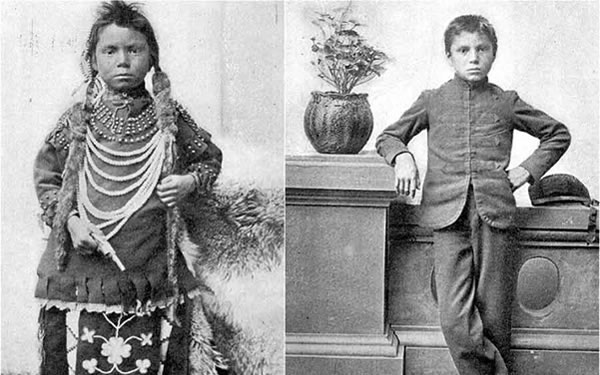
by Mark Maney | 9 Jun , 2020 | Articles, Christianity and Social & Moral Issues, FOCUS, Value of Life
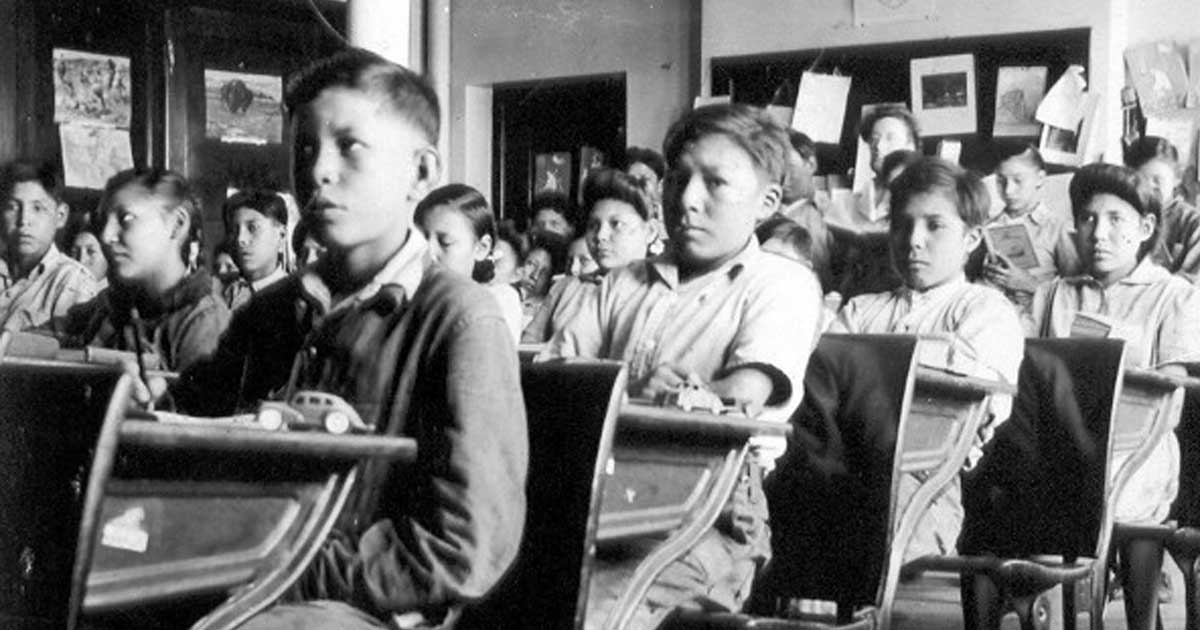
Like many of you, I have been following circumstances in the United States surrounding the tragic death of George Floyd, a black man, by a police officer. Because of these events, I feel compelled to address this issue. This issue of racism and racial injustice is something that I think each one of us should care deeply about.
For example, in Canada, and I bring this up because I was raised as a Canadian European, one of the Church’s greatest sins against Canada’s First Nations people was our support of and participation in residential schools.
Under the pretense of wanting to give First Nations people a gift – a gift of education – the Canadian government, supported by the Church, forcibly removed thousands upon thousands of First Nations children from their homes.
This was a kind of cultural genocide. An intentional way of, through education, to uneducate or de-educate an entire generation. To destroy their own understanding of their own culture, their own language, their own heritage and history, and religion.
Thousands of children died throughout this century-long project. Some through neglect, some through abuse, and some through suicide. We participated in forced sterilization of First Nations peoples, taking eugenics to a whole new level.
The sexual abuse done to the children in these schools was horrendous as well. When did these schools close you may ask? They were open from 1870 to 1996. And the horror of the residential school project didn’t stop when the schools eventually closed.
Because now we have generations of First Nations children in Canada who are growing up into their adulthood never having experienced family. And that doesn’t set you up for success in today’s world.
And so today the destruction continues, the heartache continues. And Christians have been a part of that.
We made the mistake of confusing European culture with Christ, and with the noble intent of wanting to share Jesus with people, we instead imported and enforced our own culture, often forcibly, which led to the destruction of families. And having a stable family is the number one predictor of success in our world today.
Now New Zealand never had the Residential School system that Canada had. But it does not take much searching to see some of the horribly damaging things done to the Maori people by Europeans, which have had similarly negative effects on the Maori people. And as believers in Christ, we just have to be honest about that.
So how should we move forward?
The Treaty of Waitangi – Te Tiriti o Waitangi saw two people become one. And interestingly we see this concept in the scriptures.
The classic passage is Ephesians 2:14 which states, “14 For Christ himself has brought peace to us. He united Jews and Gentiles into one people when, in his own body on the cross, he broke down the wall of hostility that separated us.”
One of my old lecturers, Steve Taylor, described this to his students as the Treaty of Jesus, where two peoples, Gentile and Jewish, became one in the Ephesians church.
And because of this Treaty of Jesus, through Jesus, two people are becoming one and there is no excuse for racism or sexism or elitism among the people of God. This is the beauty of having one faith.
As Ephesians 4:5-6 states “5There is one Lord, one faith, one baptism, 6 one God and Father of all, who is over all, in all, and living through all.”
Steve Taylor would also remind me, if you mention the Treaty of Waitangi, many Kiwis become nervous. Mental images start filling our minds. Images of protests, politicians, and mud-slinging. And yet, we have this document. A legal document that changed the relationship of Maori and Pakeha, from two peoples into one.
And just as it is hard work to live the Treaty of Jesus, it is hard work to live the Treaty of Waitangi. How do you make right the sins of the past? The theft of land, the injustice done to the Maori? What does something that happened 150 years ago, a document that I did not sign, that you did not sign, mean for us today? How do we move forward?
We see a hint, again in Ephesians, in 4:3, where it says “3Make every effort to keep yourselves united in the Spirit, binding yourselves together with peace.” Peace.
Galatians 6:2 says, “carry one another’s burdens.” Part of that is learning what the burdens are. As a European, as someone raised as a Canadian European, do I know the burden that Maori or other people of colour carry? Definitely not as much as I should, especially if I want to be a part of the solution. I need to start listening and learning much much more.
And may I ask any non-Europeans reading this, please talk to us Europeans. Let us know what we can do. Many Europeans are scared to offend and thus end up not doing anything to help. We need to work this out together. We need to communicate. But we need to do it in peace and love.
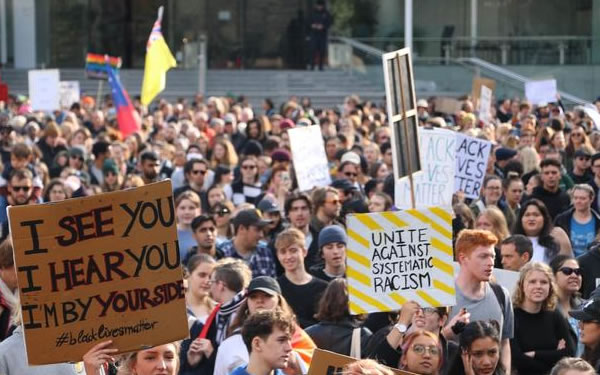
by Dr Stuart Lange | 8 Jun , 2020 | Articles, Christianity and Social & Moral Issues, Christianity in New Zealand, FOCUS, Missional Living, Secularism, Value of Life
Amidst all the rancour and toxicity issuing from a troubled USA, some questions to ponder and discuss. And some suggested responses…
- Is racism ever okay, for Christians? No, it is abhorrent, and contrary to the New Testament Gospel (e.g. Galatians 3:28)
- Is systemic racial injustice ever okay? No.
- Is police brutality ever okay? No. Police are meant to uphold justice, not act with cruelty or injustice.
- Is peaceful protest okay? Yes, and it can sometimes help bring positive change.
- Is violent protest helpful? No. It undermines a cause, and deepens divisions.
- Is the Republican Party or the Democrat Party the more Christian option? Both parties have some good people and good principles, and both parties have some policies, emphases, and tendencies which are less than Christian.
- Are all Republicans Christian? Absolutely not.
- Are all Christians Republican? No, very large numbers of American Christians (including many Afro-American and Hispanic Christians) vote for the Democrats.
- Why did many conservative American Christians vote for Mr Trump? Because many of them were Republican voters already, because over the years the Republican Party had actively courted the conservative Christian vote, and because many Christians were particularly concerned about late-term abortion.
- Do all Christians who voted for Mr Trump approve of everything Mr Trump says or does? No. Many have misgivings.
- Is President Trump personally Christian? God alone knows his heart, or truly understands him. Politically, Mr Trump makes some pro-Christian statements, and supports some Christian agendas. But many of his own words and actions do not seem very Christian.
- What does the Bible teach about universal human nature? That we are all made in the image of God, and we all reflect something of God’s goodness and glory. That we are all deeply flawed and marred by sinfulness, including selfishness, hostility, and self-deceit. That Christ is the way of love, forgiveness, peace, reconciliation, healing, and transformation.
- Are American politics relevant and transferable to New Zealand? The contexts and dynamics are very different, and the crossover is limited.
- Is there some racism and injustice in New Zealand? Unquestionably yes.
- Have the police in New Zealand sometimes acted illegally, or with brutality? Sometimes, yes.
- Is politicising Christianity good for Christianity? No, it is fraught with danger.
- Is linking American politics with New Zealand Christianity helpful? No, not at all.
- Would wearing MAGA (Making America Great Again) caps be a great and wise thing for New Zealand Christians to do? No. It would be confusing and inappropriate.
- What is some great biblical advice for everyone, especially in times of ferment: “Do not be overcome by evil, but overcome evil with good”.
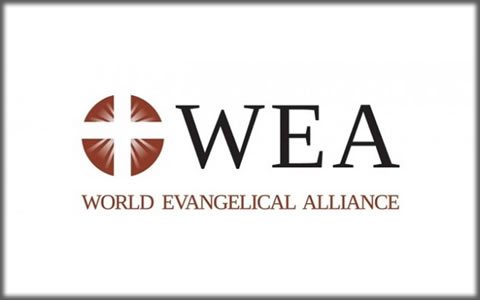
by NZ Christian Network | 5 Jun , 2020 | Articles, Christianity and Social & Moral Issues, FOCUS, Secularism, Value of Life, WEA
Deerfield, IL – June 2, 2020
The World Evangelical Alliance (WEA) joins the National Association of Evangelicals (NAE), its national member body in the United States, in lamenting the recent killing of a black unarmed man at the hands of a white police officer – a symptom of the racial injustice that continues to exist in the country. The WEA and evangelicals worldwide join together praying for an end to the violence that is overshadowing peaceful protests.
“Recent events surrounding the wrongful deaths of Ahmaud Arbery in Georgia, Breonna Taylor in Kentucky, and George Floyd in Minnesota illustrate severe racial injustices in the United States,” the NAE that represents some 42,000 churches said in a statement. “[We] lament the recurring trauma experienced by African Americans. We condemn racism and the violent abuse of power, call for justice for victims and their families, and exhort churches to combat attitudes and systems that perpetuate racism. We are grateful for law enforcement officers who honorably serve and protect our communities, and urge our members to uphold them in prayer.”
Bp Efraim Tendero, Secretary General of the WEA, said: “As a global family of Christian believers, we feel the pain of a nation in turmoil strained with broken relationships that have suffered from decades, indeed centuries of injustice between people of various ethnic backgrounds. We also wish to express our concern about the evident violence that is overshadowing those whose intent is to register a peaceful protest. This violence only adds to the pain Americans are suffering amidst the ongoing COVID-19 pandemic.
“Today as a world body, understanding the complexity of this social unrest, we stand in prayerful solidarity, asking the God of creation and the Lord of our salvation to restore peace, to establish His justice and to bring about a lasting healing and reconciliation within the United States,” Bp Tendero continued.
He concluded: “We pray that Christian believers will be at the forefront of reconciliation as did Jesus Christ who himself reconciled us to God and to each other. Further we pray that Christians will be at the forefront in advocating and working for justice, in the footsteps of our God of justice who shows no favoritism. And finally, it is our earnest prayer that believers will take on themselves the calling to be peace builders, living the life of Jesus who came to this world as the Prince of Peace.”
To read the full NAE statement, visit: nae.net/nae-addresses-racial-turmoil-calls-for-action/
Over two billion Christians in the world today are represented by three world church bodies. The World Evangelical Alliance (WEA) is one of those, serving more than 600 million evangelicals. Launched in 1846 to unite evangelicals worldwide, the WEA continues to be a dynamic movement with 9 regional and 134 national Evangelical Alliances, and over 150 member organizations. WEA’s mission is to establish and strengthen regional and national Evangelical Alliances, who in turn enable their national Church to advance the Good News of Jesus Christ and effect personal and community transformation for the glory of God. For more information, visit Worldea.org
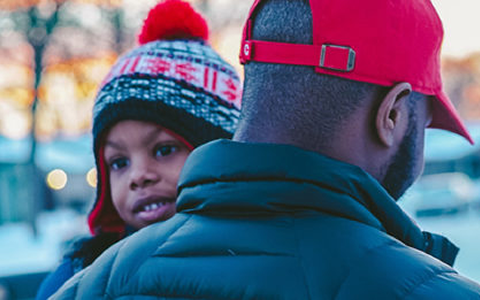
by NZ Christian Network | 29 May , 2020 | Articles, Christianity and Social & Moral Issues, FOCUS, Value of Life

Recent events surrounding the wrongful deaths of Ahmaud Arbery in Georgia, Breonna Taylor in Kentucky, and George Floyd in Minnesota illustrate severe racial injustices in the United States. The National Association of Evangelicals (NAE) laments the recurring trauma experienced by African Americans. We condemn racism and the violent abuse of power, call for justice for victims and their families, and exhort churches to combat attitudes and systems that perpetuate racism. We are grateful for law enforcement officers who honorably serve and protect our communities, and urge our members to uphold them in prayer.
Christians believe that racism is an affront to the value of individuals created in God’s image and to the divinely designed diversity of redeemed humanity. This denial of personhood and belonging runs contrary to the peace and unity that God intended in the beginning and that the Bible depicts as our destiny.
Racism appears in beliefs or practices that distinguish or elevate one race over others. When accompanied and sustained by imbalances of power, prejudice moves beyond individual relationships to institutional practices. Such racial injustice is the systemic perpetuation of racism. Its existence has unfairly benefitted some and burdened others simply due to the color of their skin and the cultural associations based upon perceptions of race.
No race or ethnicity is greater or more valuable than another. Evangelicals believe that the good news of Jesus Christ has the power to break down racial and ethnic barriers (Ephesians 2:14–18). Racism should not only be addressed after tragic events. Our communities of faith must pursue sustained efforts in this labor of love and justice.
This article appears here, on the NAE website
NZCN and NAE are both members of the World Evangelical Alliance













